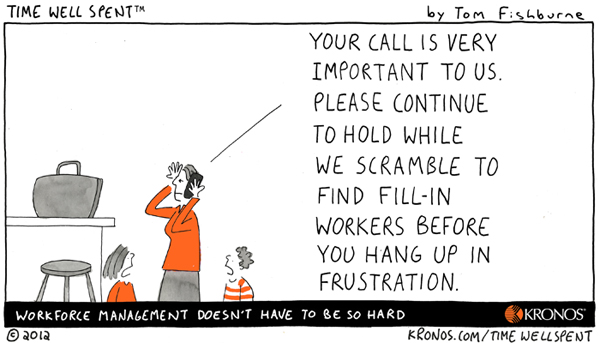When is a fib really a lie? And when does a fib-turned-lie really matter?
It’s a question I keep rolling over in my mind, especially given all that has been written the last few weeks over the résumé inaccuracies — some may prefer a stronger, more judgmental description — by now former Yahoo CEO Scott Thompson.
He has been castigated for one seemingly minor, yet telling, résumé issue: he claimed he graduated from Stonehill College in Massachusetts with degree in computer science and accounting, when in fact, it was ONLY in accounting.
Why the silly (and stupid) lie?
This would be no big deal most of the time, because unlike so many other executives who have had resume issues, Thompson did actually graduate from the college he listed with an accounting degree as he said he did. His error was in claiming a dual degree in computer science that Stonehill didn’t even offer at the time of his graduation.
Thompson hasn’t really explained why (except trying to blame it on an executive search firm), but my guess is that he did it because having a computer science degree on his résumé gave him more “street cred” in Silicon Valley. It’s a fib that might not matter in most circumstances, but one that was absolutely poisonous for the CEO of Yahoo, especially when it was discovered by an activist shareholder unhappy with how the company was being managed.
So, this fib by Thompson turned into a lie when it was discovered — and it got him booted from his job as CEO of Yahoo. But lots of people fib on résumés and it is no big deal. Is the Yahoo debacle just an aberration? Does it ever pay to lie on your résumé ?
Cindy Krischer Goodman, the workplace columnist and blogger at The Miami Herald, says it doesn’t. She writes:
The lesson here is don’t do it. If you think your resume needs some flair, do something about it — the right way. Take a class. Do volunteer work. Gain the skills or experience you’re missing. Yes, gaining those skills or experience could cut into your work life balance, but so can losing your job. If Thompson felt he needed to add a computer science degree to his resume, he should have taken classes. It’s never too late to gain more education. By the way, education is the area of a resume where people lie the most, experts say.”
“Track record successes are everything”
She also point to these statistics from another Miami Herald story she wrote on this same topic:
Studies show half of all résumés include a little padding and a third contain outright lies. According to data collected by employee background checker Hire Right, 53 percent of all job seekers’ résumés contain inaccurate information, while 34 percent have outright lies about experience, education and ability to perform essential job functions.”
What always amazes me about these CEO résumé issues when they pop up, is that the resume fib that becomes the big deal that gets the CEO fired is usually something that is really a minor issue that matters very little to the job the CEO is doing and could/should have been easily corrected before it turned into a flash point.
The Herald story makes this point as well:
Tom Connelly, managing director at Boyden Global Executive Search in Miami, says anyone putting together a résumé should realize that after a couple of years of work experience, education means less and track record successes are everything. He discovered executives mistakenly believe they need to have an MBA for high-level positions, which could lead them to falsely and unnecessarily claim to have one. “It is what you accomplished, not what you studied that matters nanoseconds into a career.”
Why fibs and lies don’t wash today
I can remember a time when enhancing a résumé was considered a minor indiscretion and something that a lot of people did without really thinking twice — but that was pre-Internet, pre-social media, before serious background checking, drug tests, and all manner of pre-hiring screening.
For better or worse, for good or bad, workplace life is very different today. Any CEO who doesn’t understand that, and fails to address it in something as personal as their own résumé, is no better than the clueless and out-of-touch executives that pop up every week on Undercover Boss.
- Chatty women lose out at work. I found this buried in a Wall Street Journal wrap-up of short news items, and frankly, I found it pretty interesting. London’s Daily Mail played it up a little more, and as they noted about this Yale research, “It is a conclusion likely to upset most feminists – and perhaps even most women. Female employees who want to succeed in the workplace should keep their mouths shut. Research suggests that women who talk too much in the office are seen as less competent than their quieter peers. For men however, the more often they voice their opinions the better they are seen at doing their jobs.”
- Workers, CEOs are poles apart on Florida’s work environment. The Tampa Bay Times found that when it comes to evaluating the Sunshine State as a place to work, employees and the executives who hire them couldn’t be further apart. “Consider Florida’s rising from No. 3 to No. 2 in Chief Executive magazine’s recent annual survey of the best states for business,” the newspaper wrote. “Florida pushed business powerhouse North Carolina from the second slot and now only trails Texas in the best business state race. … Now broaden that pinhole view. Look at the well-being of Floridians based on their own responses. It’s not a pretty sight. Ranked against other states on a Well Being Index, Florida lands at a lowly No. 42 based on 2011 data. That’s a five-state drop since 2010 when Florida ranked an already mediocre 37th.”
- Are females growing in the larger U.S. workplace? Time magazine gets right to it: “Over the past four years, the monthly jobs figures have been spun like a roulette wheel to declare which sex is gaining — or losing–from recession and recovery. April’s numbers show that women gained 73% of the 115,000 new jobs added to the U.S. economy. … (But here’s) the problem with those seemingly great April numbers: most of that big job grab by women occurred in fast-growing but low-paying areas like temporary help, private education, and health, leisure and hospitality. Even in higher-end areas like professional and business services, where women made gains, 51% of the jobs they nabbed were temporary, vs. 27% for men. “Both women and men are gaining jobs in the private sector, but men are getting the more secure jobs,” notes Joan Entmacher, vice president for family economic security at the National Women’s Law Center.”
- Kronos Time Well Spent cartoon. Kronos, the company that probably makes your organization’s time-and-attendance systems, publishes a regular Time Well Spent workplace cartoon by Tom Fishburne. I’m posting them here, from time to time, in the Weekly Wrap
 .
.
